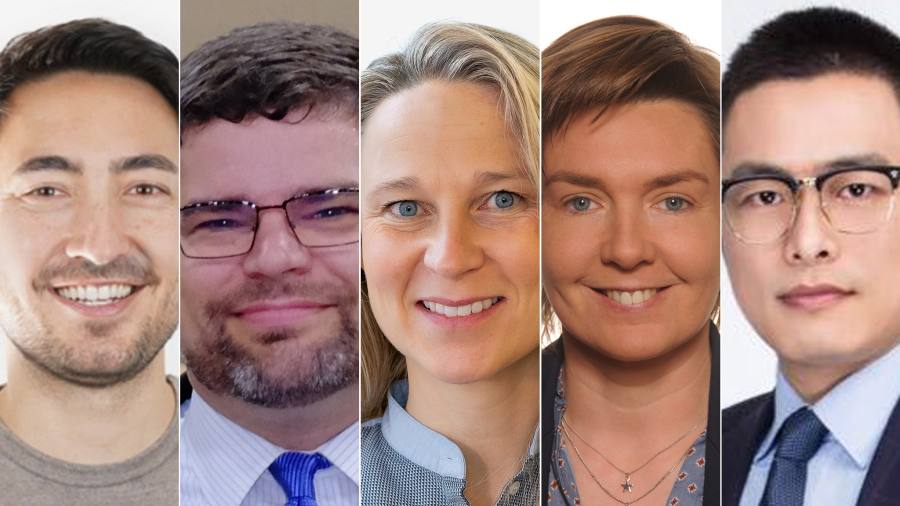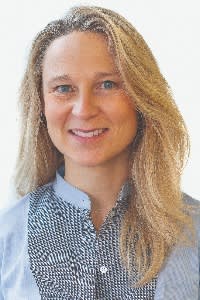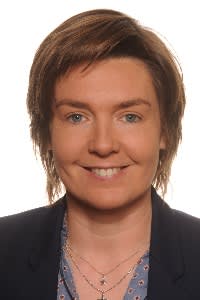What I learned from my executive education course

Justus Bach
German. Middle Management Program, ESMT2021. Head of Public IT Security Consulting, Head of Hamburg Office, Infodas GmbH, Germany
Why did you decide to take a continuing education course?
As my career progressed, I wanted to learn new methods of leadership – for example, how to lead in the position rotating, between the department and senior management, and aligning different expectations. During the course, colleagues and I discussed the various leadership challenges we faced, exchanged ideas, and received advice from coaches and other executives. Part of the training was done remotely, which was helpful to me as I have team members in different locations all working on projects together. I learned different communication techniques – including questioning, conversation and negotiation skills – to structure one-on-one meetings more effectively. I also received valuable insights into presenting and preparing quantitative data for management reviews with various stakeholders. The mindset shift helped me identify and increase the potential of others, as well as myself. It’s like having a sharper view, without the filters that existed before.
Guillaume Goin
American. The positive leader University of Michigan: Ross2018. Director, Foreign Military Sales, General Dynamics Land Systems, Michigan

Did anything surprise you in the course?
It’s very personal. Often people think that leadership has an impact on others, but a big part of the program was to examine yourself first. Take an inventory of where and who you are. Are you ready to learn? Do you have a growth mindset? If you don’t, you may have just wasted your money. Are you ready to change? So I think that’s what surprised me – that it was inward looking to begin with. And from there, you are able to generate change. You are more open to take the lessons and really apply them. The most important thing the course taught me is this: to be a leader, you must first destroy your ego. We have to be willing to watch what we do, be willing to be challenged, and then embrace those things, change, and move.
Financial Times Executive Education Ranking 2022
Olivia de Roubaix
French. Unileaders leadership program, Edhecgraduated 2022. Business Unit Director, Unilabs Paris

How do you use what you learned during the course in your daily work?
The biggest lesson of the course was that there are many different forms of leadership, and each of us must find a way to assert our leadership in a way that matches our personality. Another thing I learned is that if you want employees to follow you, you need to know where you are going. I always remind myself and my team of the overall vision and goals to give them the motivation and clarity to move forward with me. I focus on three things that I believe are critical to employee and company success: creating a positive and supportive work atmosphere for everyone; foster rewarding relationships between employees and managers; and ensuring that workers are engaged and interested in their work.
Ellen DeBelder
Belgian. digital steering, Vlerick, 2021. Head of Business Process Management, Signify. Lives in Belgium, works in the Netherlands

What was the most important lesson you learned during the course?
As part of my role, I’m on a mission to reshape business process management for the digital age. What I really liked about the course is that it is based on the best practices in the market. I’ve learned many lessons to help me drive change, but if I had to pick one, I’d pick the four competitive realities in the digital age. Companies that succeed in their transformation approach each project with the following points in mind: the customer experience is a value; customers are moving targets; digital ecosystems co-create value; and digital platforms stimulate the co-creation of value. Successful companies are building the capabilities they need and developing the skills to deal with these new realities. And denying them could lead to the loss of new opportunities, the oblivion of competitors and a misunderstanding of customer needs.
Tang Jie
Chinese. Executive Program, Shanghai Jiao Tong: Antai2022. Manager, Green Charging Strategy and Public Charging Business, SAIC Volkswagen, Shanghai

What advice would you give to future continuing education students?
Choose the right time to take the course: it is best to start an executive program after two or three years of work, because by then you have some professional experience, know what difficulties and challenges you have encountered and you can learn with a purpose. Then apply what is taught to your life and work. All knowledge must be used or it is meaningless. For example, I’m currently building SAIC-Volkswagen’s public charging ecology. When my company wants to invest in a charging station, and I need to calculate its potential value, I will use the “investment and financing of companies and capital operation” course to help me. Finally, communicate with your classmates. They belong to different industries, which can add significant inspiration and be no less valuable than what you learn from your teachers.

